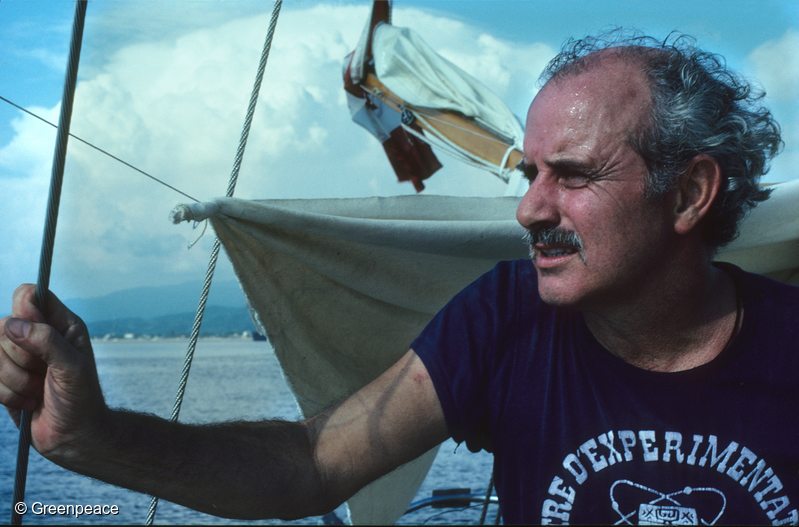Nuclear Testing Is a Major Health Concern
A 1991 study by the International Physicians for the Prevention of Nuclear War (IPPNW) estimated that the radiation and radioactive materials from atmospheric testing taken in by people up until the year 2000 would cause 430,000 cancer deaths. Nuclear testing releases radiation that lingers in the environment and can be absorbed into the body.
The effect of radiation on mother’s breast milk and baby’s teeth was what led countries to sign the Partial Test Ban Treaty, a treaty that was signed by U.S., Soviet Union, and the U.K.—just not France. The treaty banned all above ground testing, something that France continued to do in the southern pacific.
David McTaggert and Greenpeace-III Answer the Call
In 1972 David McTaggart, a Canadian living in New Zealand, read a newspaper about the planned French tests—and that a newly founded organisation called Greenpeace was looking for a boat and skipper to protest the tests with an aquatic sit-in. He renamed his boat the “Greenpeace-III” and set sail for the test site.
David observed international law in establishing anchor position, but he ignored France’s unilateral declaration of the area as a forbidden zone. The presence of his boat forced the French government to halt its test. A French Naval vessel eventually rammed his boat to end the embarrassing situation.
McTaggart repaired his boat and returned a year later. This time, he was physically beaten by French military personnel, who denied the charge, claiming that McTaggart’s ship had already left the area. However, one of McTaggart’s crew photographed the beating, which proved the French had been lying. The photographs were widely published and the story drew further criticism of the French nuclear testing program.
French Courts Side With McTaggart
McTaggart entered into lengthy litigation against the French. In 1974 he won part of his case, a landmark decision in which the French courts sided against the French government. That same year, the French announced that they would end their atmospheric nuclear testing program. Atmospheric testing had been driven out of the entire Pacific Ocean.


